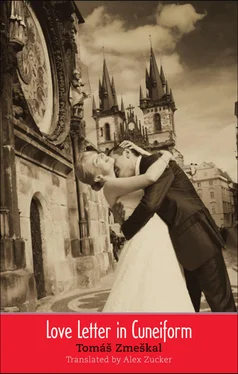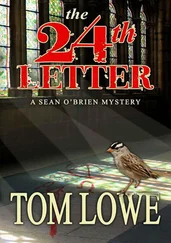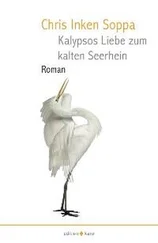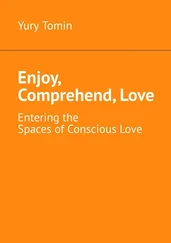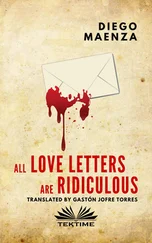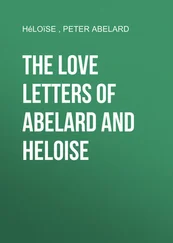It was soon obvious to Maximilian that his marriage was slipping out from underneath him. He didn’t know exactly what it was, but the continuous onslaughts of emotion and fatigue, combined with the perpetual lack of money, brought him to the point where he was willing to try something different. He made an effort to be more honest, not to be like his father. They were living in different times, after all. It was the seventies, time to harvest the ideas planted by the hardworking minds of the sixties, dreams of brotherhood, equality, love, and the harmony of the spheres — all of that made it to Czechoslovakia during the brief interlude when the Iron Curtain lifted. Maximilian wanted to liberate himself, not politically, but personally. After all, there were still Russian tanks and Russian soldiers in Czechoslovakia’s barracks. He wanted to be free, even if sometimes it wasn’t entirely clear what from. But one look at the magazines, with their in-depth reports on the most current psychological trends, and it was obvious to him that he needed to free himself from himself and his own prejudices. He didn’t know what his main prejudices were, but once he grasped the general theory of human development, he also grasped that the devil of ignorance could hide inside any thought or feeling. He realized that if his life had any value, it was in understanding himself, and he hoped his efforts would also produce a turn for the better in his marriage. And so it was that there, on the strictly drawn boundary between the fertile fields of psychological theory, the idea of honesty was hatched. Honesty consisted of giving vent to his emotions. Letting go of self-control and giving vent to feelings, all feelings, since they alone contained the truth. That was the understanding Maximilian arrived at. In practice that meant drinking a bit more at parties, and when he came home late at night now, he got much angrier than before he had adopted the theory of honesty. When he and Alice had a dispute, sometimes he would hit the table. After a few months he started grabbing her painfully by the wrist, and not long after that he hit her. The first time, he seemed drunker to her than she’d ever seen him before. The second time, he was sober and he told her it was his anger and he needed to give it free rein. When he hit her the third time, her shoulder slammed into the wall and still she refused to be afraid of him. The bruises and fear didn’t appear until later.
When Kryštof was four and a half, the doctor recommended that Alice stop using contraception for a while. By that time Maximilian was sleeping more at his friends’ than at home, and Alice didn’t even want to hear how many lovers he had vying for his attention. And so it was several months, as a consequence of his sparse and irregular visits, as a consequence of their sporadic and irregular lovemaking, before Alice was sure she was pregnant. She knew it, though, even before she was sure. That feeling she hadn’t experienced in five long years was back again. Even little Kryštof noticed something, despite spending more and more time with his grandfather, who often took him out to the countryside on weekends. Alice was back in a bubble of stupendous bliss. A bubble that was sweet and nourishing, and guaranteed absolute protection and security. Even if she broke up with Maximilian, it wouldn’t matter: She would finally have two children, and that was what was important. She continued taking Kryštof out to the cottage, where his grandfather initiated him into the mysteries of numbers, geometry, and checkers, and every now and then, usually on Saturdays, Maximilian would show up for the evening, or an evening and a half. The arguments they waged were as fierce as trench warfare and as inevitable as the fact that their love was being transformed — into sulfur, charcoal, and saltpeter, from exhaustion and endless worry into hatred. It blew up just as quickly every time. All it took was a look, a sarcastic tone or well-chosen gesture, and the attack was on. First the accusations flew, then came the counterattack. And then Alice said:
“You can go to hell for all I care! I got what I want from you, which is Kryštof and the child I’m carrying right now! I can take care of them both myself. I wouldn’t trust you with them for five minutes — they might grow up to be like you!”
It wasn’t until after Maximilian hit her and she was on the floor, wiping the blood from her face, that it dawned on him what she had said.
“You’re having a baby?” he asked.
“Yes,” she said, “with you, darling. I’m having it with you.”
“And who do you think’s going to pay for it?” Maximilian snapped back. He grabbed her by the hair and started beating her.
Josef didn’t have a clue about their nightly arguments. For one thing he slept on the next floor up, in the room with Kryštof, and for another he took his hearing aid out at night. When Kryštof had a bad dream, he would climb in bed with the old man and hold his hand. If it was really scary, he would tug on his grandpa’s hand till he woke up. Josef would switch on the lamp he had on his nightstand and put in his hearing aid. There was no point in Kryštof trying to say anything until then. That was how it went this time too, only instead of telling his grandpa about his dreams, the boy put his finger to his mouth and said, “Listen, they’re having a fight again.” Josef could hear the voices of Maximilian and Alice from downstairs. He sat up in bed and slung his robe over his shoulders. “I’ll go straighten them out, buddy. It’ll be fine, not like last week,” Josef said. He walked downstairs, and when he opened the door he saw his son-in-law gripping his daughter by the hair, flailing at her as he tried to drag her out from under the bench where she was curled up screaming. He hurled himself at Maximilian, but the length of his jump corresponded only to the strength of an old man, as opposed to the intentions of a father protecting his daughter. He tripped over a toppled chair and landed on the ground. As he got to his feet, Maximilian stood over him, drunkenly screaming at him to stay out of it.
Since Kryštof always whispered to him at night, Josef had his hearing aid set to the maximum, so when Maximilian roared at him it was so loud it hurt. In a spur-of-the-moment reaction of self-defense, Josef slapped him with all his weight behind it, staggering his son-in-law. Maximilian stopped screaming at Josef and punched him. In recollecting it to himself, Josef later classified the blow as a not-so-artful right hook. He tried to dodge it, but was too old and slow to avoid the incoming fist completely, though instead of taking it square on the chin, where it was aimed, he caught it on the left side of his jaw. As he fell to his right onto his back, he landed across another chair lying on the ground. He noticed it was there, but it happened too fast for him to avoid. As he hit the ground, he felt pain in his right forearm and ribs. The room was dead silent. Maximilian kicked something furiously and walked off. Josef felt the vibrations in the floorboards from the slam of the door outside, then silence. After a while he lifted himself and crawled along the ground on all fours until he found his hearing aid, which had fallen out of his ear. He put it back in, but didn’t hear anything, so he pulled it out again, opened the battery cover, and saw the battery wasn’t touching one of the contacts. He readjusted it, snapped the cover shut, put the hearing aid back in his ear, looked at his daughter, and heard her say, “I think my water burst, Dad! It burst! I think I’m bleeding.”
The neighbor who drove them to the hospital had corduroy pants and a windbreaker on over his pajamas. Josef was wearing a torn robe, pajamas, and hiking boots. Kryštof was dressed as if he were going to school, and Alice was curled into a ball on the fold-down rear seat, bleeding from her genitals. The whole way the neighbor was saying indignantly: “That bastard, that bastard engineer, he could’ve killed you both. I say lock the sonuvabitch up.” He also gave each of his passengers a ski cap with a pom-pom. “My heat’s not working,” he explained. “Take it, so you don’t catch cold!”
Читать дальше
